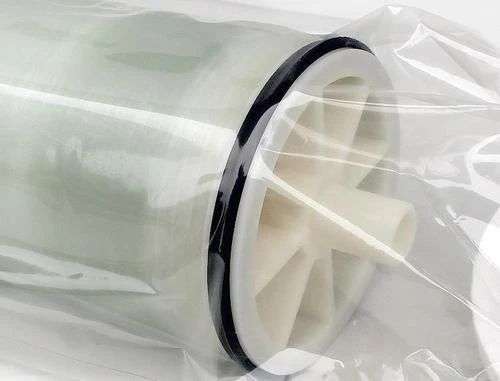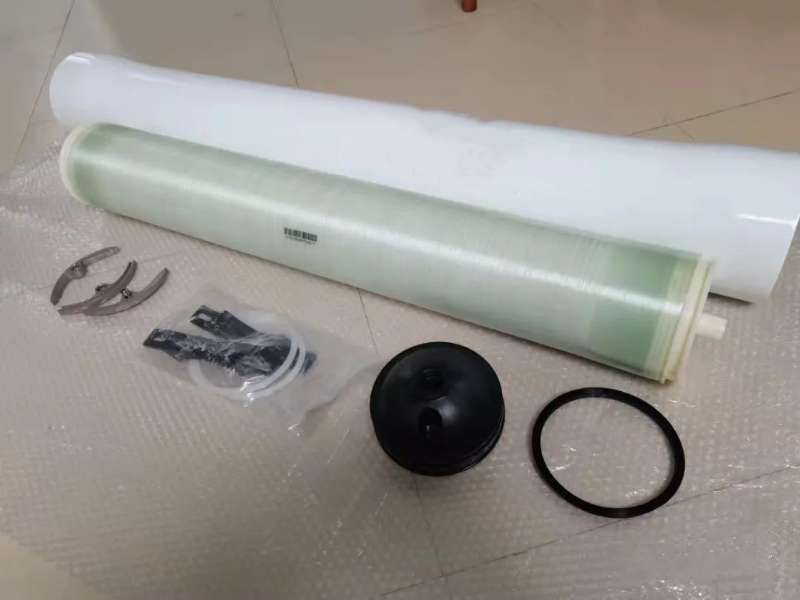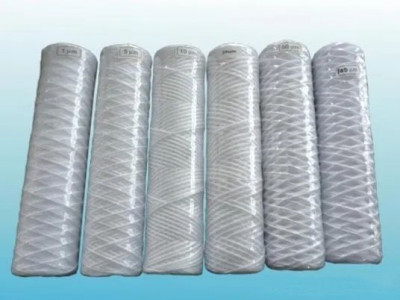December 10, 2021
The difference in the use of reverse osmosis membranes:
Conventional aromatic polyamide reverse osmosis composite membranes are produced in much the same way, using polyester nonwoven fabrics as a structural strength base, a layer of highly permeable microporous polysulfone (PSF) was pre-coated on the non-woven fabric as a support layer, and then an ultra-thin separation functional layer, usually a wet one, was formed by interfacial recondensation.
If a dry film is required, a wet film is also required to enter the drying unit.
Therefore, the difference between a dry diaphragm and a wet diaphragm is that the dry diaphragm is made by drying the wet diaphragm.
There is no obvious difference between the rolling process of the reverse osmosis membrane components: the wet membrane is the wet membrane, and the dry membrane is the dry membrane.
Advantages of wet reverse osmosis membrane element:
1.The performance of each membrane element is tested before it leaves the factory, which can ensure that the performance of each membrane element reaches the standard and prevent the defective membrane element from leaving the factory.
2. The wet reverse osmosis membrane element has excellent initial performance. The best performance of the membrane element can be achieved by simple washing after field installation, which saves start-up time and washing water source.
3. The basic performance of the wet membrane element is generally superior to that of the dry membrane element,the desalting rate and water yield of the membrane element are slightly superior.
Disadvantages of wet reverse osmosis membrane element:
1. Wet membrane components need to be protected with protective solution or other protective measures. The membrane components need to be kept wet at all times and keep the membrane components free from microbial contamination.
2. Because the membrane element is wet, the transport below freezing point in winter should be carried by insulated vehicle or stored in the place above freezing point after reaching the destination.
Advantages of dry reverse osmosis membrane element:
1.The manufacturing technology and equipment of dry-type membrane components are relatively complex, but dry-type membrane components do not need protective liquid or other special protective measures, are light in weight, relatively low in transportation cost, and the storage time of membrane components is longer.
2.dry membrane components because there is no moisture, winter transportation below freezing point without special vehicles, transportation is convenient, at the same time on the preservation site requirements are also low.
Disadvantages of dry reverse osmosis membrane element:
1.spot-check of membrane components before they leave the factory can not guarantee that the performance of every membrane component can reach the standard, and there is possibility that there are defects in the membrane components.
2.The performance of membrane element is low at the initial stage after it is loaded into the system, and it needs long time to soak and wash, so that the performance of membrane element can reach the best state gradually, wasting time and washing water.
3. The basic performance of reverse osmosis membrane components, i. e. water yield and desalting rate are lower than those of wet membrane components.
Detailed Operating Instructions for Automatic Dosing Systems
December 26, 2024
Characteristics and Applications of Precision Filters
December 19, 2024





